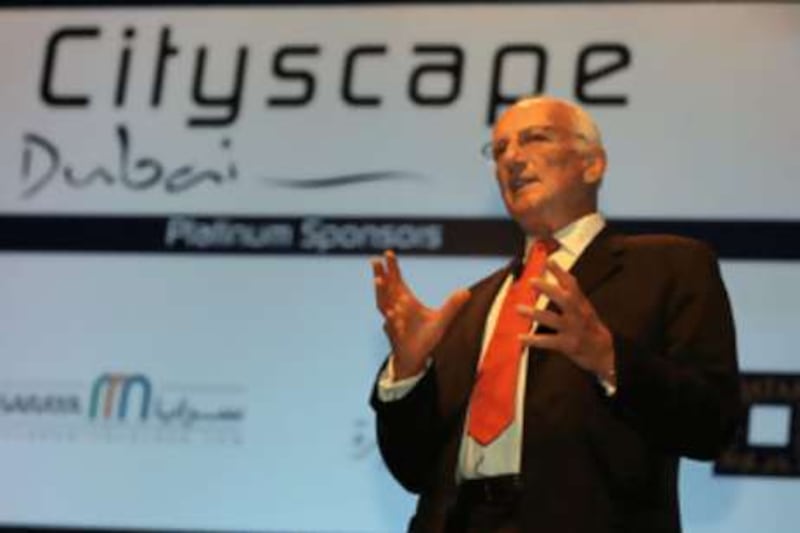One man who has experienced a major financial crisis and lived to tell the tale is Donald Trump, the author, TV star and chief executive of the real estate firm, the Trump Organization. In the early 1990s, the billionaire's business was on the verge of collapse as mounting debts took it towards bankruptcy. His resurgence and subsequent global fame coincided with the arrival at his firm of George Ross, a property lawyer with 55 years of experience, who joined the Trump Organization in 1996. A close friend of Mr Trump since the 1970s, Mr Ross is also a judge on the reality show The Apprentice.
Speaking at Dubai's Cityscape exhibition yesterday, Mr Ross, the executive vice president and senior counsel at the Trump Organization, said the current economic crisis was on a much greater global scale, but distinct parallels exist between the situation in the early 1990s and the current subprime lending crisis. "I've seen cycles and I've lived through them," he said. "In 1990, Donald owed US$990 million (Dh3.63 billion). [He] built the properties, but then there was nobody to lease them and the mortgages that were made were totally inflated. Does this sound familiar?"
Mr Trump owed so much money that lenders could not afford to let him go broke, Mr Ross said. "Does this sound familiar today with banks and lenders who owe so many billions that you can't let them have an adverse effect on the market? Sure," he said. The Trump Organization's answer was to keep its properties and hotels and let the lenders have the cash income, but to retain the right to buy them back in the future at their original price.
Using the money he gained from his successful casino business in Atlantic City, Mr Trump bought back his properties and gradually changed his net worth from minus $990 million to the $5bn or $6bn that it is today. Mr Ross said the current credit crisis was due to "downright greed on the part of the people creating loans". "It should never have happened," he said. "The banks and brokers created loans that they would never owe themselves, but were only good because they could sell them to someone else. The value that was created was inflated. It looked good on paper, but it wasn't."
But the current strife in property markets could present some money-spinning opportunities for savvy investors, he said. "Are there good deals out there today? Sure, if you have the cash," he said. "Traditionally, real estate has gone up, but it doesn't go up in a straight line. If you have the ability, the cash, to outlive the cycle, you will do well. If you don't, you'll get caught in the middle and will be squeezed."
Looking at the Dubai property market, Mr Ross questioned whether the emirate would attract buyers in sufficient quantities to fill its new buildings. "You'll get the buyers who put down a 20 per cent cash deposit, but when the time comes to pay the 80 per cent, are they going to be there? You don't know." rditcham@thenational.ae






